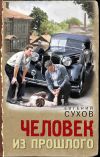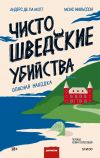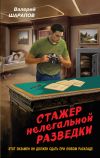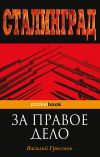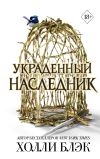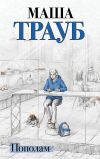Текст книги "The Great Boer War"

Автор книги: Arthur Conan Doyle
Жанр: Зарубежная публицистика, Публицистика
Возрастные ограничения: +12
сообщить о неприемлемом содержимом
Текущая страница: 16 (всего у книги 43 страниц)
The position was so bad that no efforts of officers or men could do anything to mend it. They were in a murderous dilemma. If they fell back for cover the Boer riflemen would rush the position. If they held their ground this horrible shell fire must continue, which they had no means of answering. Down at Gun Hill in front of the Boer position we had no fewer than five batteries, the 78th, 7th, 73rd, 63rd, and 61st howitzer, but a ridge intervened between them and the Boer guns which were shelling Spion Kop, and this ridge was strongly entrenched. The naval guns from distant Mount Alice did what they could, but the range was very long, and the position of the Boer guns uncertain. The artillery, situated as it was, could not save the infantry from the horrible scourging which they were enduring.
There remains the debated question whether the British guns could have been taken to the top. Mr. Winston Churchill, the soundness of whose judgment has been frequently demonstrated during the war, asserts that it might have been done. Without venturing to contradict one who was personally present, I venture to think that there is strong evidence to show that it could not have been done without blasting and other measures, for which there was no possible time. Captain Hanwell of the 78th R.F.A., upon the day of the battle had the very utmost difficulty with the help of four horses in getting a light Maxim on to the top, and his opinion, with that of other artillery officers, is that the feat was an impossible one until the path had been prepared. When night fell Colonel Sim was despatched with a party of Sappers to clear the track and to prepare two emplacements upon the top, but in his advance he met the retiring infantry.
Throughout the day reinforcements had pushed up the hill, until two full brigades had been drawn into the fight. From the other side of the ridge Lyttelton sent up the Scottish Rifles, who reached the summit, and added their share to the shambles upon the top. As the shades of night closed in, and the glare of the bursting shells became more lurid, the men lay extended upon the rocky ground, parched and exhausted. They were hopelessly jumbled together, with the exception of the Dorsets, whose cohesion may have been due to superior discipline, less exposure, or to the fact that their khaki differed somewhat in colour from that of the others. Twelve hours of so terrible an experience had had a strange effect upon many of the men. Some were dazed and battle-struck, incapable of clear understanding. Some were as incoherent as drunkards. Some lay in an overpowering drowsiness. The most were doggedly patient and long-suffering, with a mighty longing for water obliterating every other emotion.
Before evening fell a most gallant and successful attempt had been made by the third battalion of the King's Royal Rifles from Lyttelton's Brigade to relieve the pressure upon their comrades on Spion Kop. In order to draw part of the Boer fire away they ascended from the northern side and carried the hills which formed a continuation of the same ridge. The movement was meant to be no more than a strong demonstration, but the riflemen pushed it until, breathless but victorious, they stood upon the very crest of the position, leaving nearly a hundred dead or dying to show the path which they had taken. Their advance being much further than was desired, they were recalled, and it was at the moment that Buchanan Riddell, their brave Colonel, stood up to read Lyttelton's note that he fell with a Boer bullet through his brain, making one more of those gallant leaders who died as they had lived, at the head of their regiments. Chisholm, Dick-Cunyngham, Downman, Wilford, Gunning, Sherston, Thackeray, Sitwell, MacCarthy O'Leary, Airlie – they have led their men up to and through the gates of death. It was a fine exploit of the 3rd Rifles. 'A finer bit of skirmishing, a finer bit of climbing, and a finer bit of fighting, I have never seen,' said their Brigadier. It is certain that if Lyttelton had not thrown his two regiments into the fight the pressure upon the hill-top might have become unendurable; and it seems also certain that if he had only held on to the position which the Rifles had gained, the Boers would never have reoccupied Spion Kop.
And now, under the shadow of night, but with the shells bursting thickly over the plateau, the much-tried Thorneycroft had to make up his mind whether he should hold on for another such day as he had endured, or whether now, in the friendly darkness, he should remove his shattered force. Could he have seen the discouragement of the Boers and the preparations which they had made for retirement, he would have held his ground. But this was hidden from him, while the horror of his own losses was but too apparent. Forty per cent of his men were down. Thirteen hundred dead and dying are a grim sight upon a wide-spread battle-field, but when this number is heaped upon a confined space, where from a single high rock the whole litter of broken and shattered bodies can be seen, and the groans of the stricken rise in one long droning chorus to the ear, then it is an iron mind indeed which can resist such evidence of disaster. In a harder age Wellington was able to survey four thousand bodies piled in the narrow compass of the breach of Badajos, but his resolution was sustained by the knowledge that the military end for which they fell had been accomplished. Had his task been unfinished it is doubtful whether even his steadfast soul would not have flinched from its completion. Thorneycroft saw the frightful havoc of one day, and he shrank from the thought of such another. 'Better six battalions safely down the hill than a mop up in the morning,' said he, and he gave the word to retire. One who had met the troops as they staggered down has told me how far they were from being routed. In mixed array, but steadily and in order, the long thin line trudged through the darkness. Their parched lips would not articulate, but they whispered 'Water! Where is water?' as they toiled upon their way. At the bottom of the hill they formed into regiments once more, and marched back to the camp. In the morning the blood-spattered hill-top, with its piles of dead and of wounded, were in the hands of Botha and his men, whose valour and perseverance deserved the victory which they had won. There is no doubt now that at 3 A.M. of that morning Botha, knowing that the Rifles had carried Burger's position, regarded the affair as hopeless, and that no one was more astonished than he when he found, on the report of two scouts, that it was a victory and not a defeat which had come to him.
How shall we sum up such an action save that it was a gallant attempt, gallantly carried out, and as gallantly met? On both sides the results of artillery fire during the war have been disappointing, but at Spion Kop beyond all question it was the Boer guns which won the action for them. So keen was the disappointment at home that there was a tendency to criticise the battle with some harshness, but it is difficult now, with the evidence at our command, to say what was left undone which could have altered the result. Had Thorneycroft known all that we know, he would have kept his grip upon the hill. On the face of it one finds it difficult to understand why so momentous a decision, upon which the whole operations depended, should have been left entirely to the judgment of one who in the morning had been a simple Lieutenant-Colonel. 'Where are the bosses?' cried a Fusilier, and the historian can only repeat the question. General Warren was at the bottom of the hill. Had he ascended and determined that the place should still be held, he might have sent down the wearied troops, brought up smaller numbers of fresh ones, ordered the Sappers to deepen the trenches, and tried to bring up water and guns. It was for the divisional commander to lay his hand upon the reins at so critical an instant, to relieve the weary man who had struggled so hard all day.
The subsequent publication of the official despatches has served little purpose, save to show that there was a want of harmony between Buller and Warren, and that the former lost all confidence in his subordinate during the course of the operations. In these papers General Buller expresses the opinion that had Warren's operations been more dashing, he would have found his turning movement upon the left a comparatively easy matter. In this judgment he would probably have the concurrence of most military critics. He adds, however, 'On the 19th, I ought to have assumed command myself. I saw that things were not going well – indeed, everyone saw that. I blame myself now for not having done so. I did not, because, if I did, I should discredit General Warren in the estimation of the troops, and, if I were shot, and he had to withdraw across the Tugela, and they had lost confidence in him, the consequences might be very serious. I must leave it to higher authority whether this argument was a sound one.' It needs no higher authority than common-sense to say that the argument is an absolutely unsound one. No consequences could be more serious than that the operations should miscarry and Ladysmith remain unrelieved, and such want of success must in any case discredit Warren in the eyes of his troops. Besides, a subordinate is not discredited because his chief steps in to conduct a critical operation. However, these personal controversies may be suffered to remain in that pigeon-hole from which they should never have been drawn.
On account of the crowding of four thousand troops into a space which might have afforded tolerable cover for five hundred the losses in the action were very heavy, not fewer than fifteen hundred being killed, wounded, or missing, the proportion of killed being, on account of the shell fire, abnormally high. The Lancashire Fusiliers were the heaviest sufferers, and their Colonel Blomfield was wounded and fell into the hands of the enemy. The Royal Lancasters also lost heavily. Thorneycroft's had 80 men hit out of 180 engaged. The Imperial Light Infantry, a raw corps of Rand refugees who were enduring their baptism of fire, lost 130 men. In officers the losses were particularly heavy, 60 being killed or wounded. The Boer returns show some 50 killed and 150 wounded, which may not be far from the truth. Without the shell fire the British losses might not have been much more.
General Buller had lost nearly two thousand men since he had crossed the Tugela, and his purpose was still unfulfilled. Should he risk the loss of a large part of his force in storming the ridges in front of him, or should he recross the river and try for an easier route elsewhere? To the surprise and disappointment both of the public and of the army, he chose the latter course, and by January 27th he had fallen back, unmolested by the Boers, to the other side of the Tugela. It must be confessed that his retreat was admirably conducted, and that it was a military feat to bring his men, his guns, and his stores in safety over a broad river in the face of a victorious enemy. Stolid and unmoved, his impenetrable demeanour restored serenity and confidence to the angry and disappointed troops. There might well be heavy hearts among both them and the public. After a fortnight's campaign, and the endurance of great losses and hardships, both Ladysmith and her relievers found themselves no better off than when they started. Buller still held the commanding position of Mount Alice, and this was all that he had to show for such sacrifices and such exertions. Once more there came a weary pause while Ladysmith, sick with hope deferred, waited gloomily upon half-rations of horse-flesh for the next movement from the South.
Chapter 16. Vaalkranz
Neither General Buller nor his troops appeared to be dismayed by the failure of their plans, or by the heavy losses which were entailed by the movement which culminated at Spion Kop. The soldiers grumbled, it is true, at not being let go, and swore that even if it cost them two-thirds of their number they could and would make their way through this labyrinth of hills with its fringe of death. So doubtless they might. But from first to last their General had shown a great – some said an exaggerated – respect for human life, and he had no intention of winning a path by mere slogging, if there were a chance of finding one by less bloody means. On the morrow of his return he astonished both his army and the Empire by announcing that he had found the key to the position and that he hoped to be in Ladysmith in a week. Some rejoiced in the assurance. Some shrugged their shoulders. Careless of friends or foes, the stolid Buller proceeded to work out his new combination.
In the next few days reinforcements trickled in which more than made up for the losses of the preceding week. A battery of horse artillery, two heavy guns, two squadrons of the 14th Hussars, and infantry drafts to the number of twelve or fourteen hundred men came to share the impending glory or disaster. On the morning of February 5th the army sallied forth once more to have another try to win a way to Ladysmith. It was known that enteric was rife in the town, that shell and bullet and typhoid germ had struck down a terrible proportion of the garrison, and that the rations of starved horse and commissariat mule were running low. With their comrades – in many cases their linked battalions – in such straits within fifteen miles of them, Buller's soldiers had high motives to brace them for a supreme effort.
The previous attempt had been upon the line immediately to the west of Spion Kop. If, however, one were to follow to the east of Spion Kop, one would come upon a high mountain called Doornkloof. Between these two peaks, there lies a low ridge, called Brakfontein, and a small detached hill named Vaalkranz. Buller's idea was that if he could seize this small Vaalkranz, it would enable him to avoid the high ground altogether and pass his troops through on to the plateau beyond. He still held the Ford at Potgieter's and commanded the country beyond with heavy guns on Mount Alice and at Swartz Kop, so that he could pass troops over at his will. He would make a noisy demonstration against Brakfontein, then suddenly seize Vaalkranz, and so, as he hoped, hold the outer door which opened on to the passage to Ladysmith.
The getting of the guns up Swartz Kop was a preliminary which was as necessary as it was difficult. A road was cut, sailors, engineers, and gunners worked with a will under the general direction of Majors Findlay and Apsley Smith. A mountain battery, two field guns, and six naval 12-pounders were slung up by steel hawsers, the sailors yeo-hoing on the halliards. The ammunition was taken up by hand. At six o'clock on the morning of the 5th the other guns opened a furious and probably harmless fire upon Brakfontein, Spion Kop, and all the Boer positions opposite to them. Shortly afterwards the feigned attack upon Brakfontein was commenced and was sustained with much fuss and appearance of energy until all was ready for the development of the true one. Wynne's Brigade, which had been Woodgate's, recovered already from its Spion Kop experience, carried out this part of the plan, supported by six batteries of field artillery, one howitzer battery, and two 4.7 naval guns. Three hours later a telegram was on its way to Pretoria to tell how triumphantly the burghers had driven back an attack which was never meant to go forward. The infantry retired first, then the artillery in alternate batteries, preserving a beautiful order and decorum. The last battery, the 78th, remained to receive the concentrated fire of the Boer guns, and was so enveloped in the dust of the exploding shells that spectators could only see a gun here or a limber there. Out of this whirl of death it quietly walked, without a bucket out of its place, the gunners drawing one wagon, the horses of which had perished, and so effected a leisurely and contemptuous withdrawal. The gallantry of the gunners has been one of the most striking features of the war, but it has never been more conspicuous than in this feint at Brakfontein.
While the attention of the Boers was being concentrated upon the Lancashire men, a pontoon bridge was suddenly thrown across the river at a place called Munger's Drift, some miles to the eastward. Three infantry brigades, those of Hart, Lyttelton, and Hildyard, had been massed all ready to be let slip when the false attack was sufficiently absorbing. The artillery fire (the Swartz Kop guns, and also the batteries which had been withdrawn from the Brakfontein demonstration) was then turned suddenly, with the crashing effect of seventy pieces, upon the real object of attack, the isolated Vaalkranz. It is doubtful whether any position has ever been subjected to so terrific a bombardment, for the weight of metal thrown by single guns was greater than that of a whole German battery in the days of their last great war. The 4-pounders and 6-pounders of which Prince Kraft discourses would have seemed toys beside these mighty howitzers and 4.7's. Yet though the hillside was sharded off in great flakes, it is doubtful if this terrific fire inflicted much injury upon the cunning and invisible riflemen with whom we had to contend.
About midday the infantry began to stream across the bridge, which had been most gallantly and efficiently constructed under a warm fire, by a party of sappers, under the command of Major Irvine. The attack was led by the Durham Light Infantry of Lyttelton's Brigade, followed by the 1st Rifle Brigade, with the Scottish and 3rd Rifles in support. Never did the old Light Division of Peninsular fame go up a Spanish hillside with greater spirit and dash than these, their descendants, facing the slope of Vaalkranz. In open order they moved across the plain, with a superb disregard of the crash and patter of the shrapnel, and then up they went, the flitting figures, springing from cover to cover, stooping, darting, crouching, running, until with their glasses the spectators on Swartz Kop could see the gleam of the bayonets and the strain of furious rushing men upon the summit, as the last Boers were driven from their trenches. The position was gained, but little else. Seven officers and seventy men were lying killed and wounded among the boulders. A few stricken Boers, five unwounded prisoners, and a string of Basuto ponies were the poor fruits of victory – those and the arid hill from which so much had been hoped, and so little was to be gained.
It was during this advance that an incident occurred of a more picturesque character than is usual in modern warfare. The invisibility of combatants and guns, and the absorption of the individual in the mass, have robbed the battle-field of those episodes which adorned, if they did not justify it. On this occasion, a Boer gun, cut off by the British advance, flew out suddenly from behind its cover, like a hare from its tussock, and raced for safety across the plain. Here and there it wound, the horses stretched to their utmost, the drivers stooping and lashing, the little gun bounding behind. To right to left, behind and before, the British shells burst, lyddite and shrapnel, crashing and riving. Over the lip of a hollow, the gallant gun vanished, and within a few minutes was banging away once more at the British advance. With cheers and shouts and laughter, the British infantrymen watched the race for shelter, their sporting spirit rising high above all racial hatred, and hailing with a 'gone to ground' whoop the final disappearance of the gun.
The Durhams had cleared the path, but the other regiments of Lyttelton's Brigade followed hard at their heels, and before night they had firmly established themselves upon the hill. But the fatal slowness which had marred General Buller's previous operations again prevented him from completing his success. Twice at least in the course of these operations there is evidence of sudden impulse to drop his tools in the midst of his task and to do no more for the day. So it was at Colenso, where an order was given at an early hour for the whole force to retire, and the guns which might have been covered by infantry fire and withdrawn after nightfall were abandoned. So it was also at a critical moment at this action at Vaalkranz. In the original scheme of operations it had been planned that an adjoining hill, called the Green Hill, which partly commanded Vaalkranz, should be carried also. The two together made a complete position, while singly each was a very bad neighbour to the other. On the aide-de-camp riding up, however, to inquire from General Buller whether the time had come for this advance, he replied, 'We have done enough for the day,' and left out this essential portion of his original scheme, with the result that all miscarried.
Speed was the most essential quality for carrying out his plan successfully. So it must always be with the attack. The defence does not know where the blow is coming, and has to distribute men and guns to cover miles of ground. The attacker knows where he will hit, and behind a screen of outposts he can mass his force and throw his whole strength against a mere fraction of that of his enemy. But in order to do so he must be quick. One tiger spring must tear the centre out of the line before the flanks can come to its assistance. If time is given, if the long line can concentrate, if the scattered guns can mass, if lines of defence can be reduplicated behind, then the one great advantage which the attack possesses is thrown away. Both at the second and at the third attempts of Buller the British movements were so slow that had the enemy been the slowest instead of the most mobile of armies, they could still always have made any dispositions which they chose. Warren's dawdling in the first days of the movement which ended at Spion Kop might with an effort be condoned on account of possible difficulties of supply, but it would strain the ingenuity of the most charitable critic to find a sufficient reason for the lethargy of Vaalkranz. Though daylight comes a little after four, the operations were not commenced before seven. Lyttelton's Brigade had stormed the hill at two, and nothing more was done during the long evening, while officers chafed and soldiers swore, and the busy Boers worked furiously to bring up their guns and to bar the path which we must take. General Buller remarked a day or two later that the way was not quite so easy as it had been. One might have deduced the fact without the aid of a balloon.
The brigade then occupied Vaalkranz and erected sangars and dug trenches. On the morning of the 6th, the position of the British force was not dissimilar to that of Spion Kop. Again they had some thousands of men upon a hill-top, exposed to shell fire from several directions and without any guns upon the hill to support them. In one or two points the situation was modified in their favour, and hence their escape from loss and disaster. A more extended position enabled the infantry to avoid bunching, but in other respects the situation was parallel to that in which they had found themselves a fortnight before.
The original plan was that the taking of Vaalkranz should be the first step towards the outflanking of Brakfontein and the rolling up of the whole Boer position. But after the first move the British attitude became one of defence rather than of attack. Whatever the general and ultimate effect of these operations may have been, it is beyond question that their contemplation was annoying and bewildering in the extreme to those who were present. The position on February 6th was this. Over the river upon the hill was a single British brigade, exposed to the fire of one enormous gun – a 96-pound Creusot, the longest of all Long Toms – which was stationed upon Doornkloof, and of several smaller guns and pom-poms which spat at them from nooks and crevices of the hills. On our side were seventy-two guns, large and small, all very noisy and impotent. It is not too much to say, as it appears to me, that the Boers have in some ways revolutionised our ideas in regard to the use of artillery, by bringing a fresh and healthy common-sense to bear upon a subject which had been unduly fettered by pedantic rules. The Boer system is the single stealthy gun crouching where none can see it. The British system is the six brave guns coming into action in line of full interval, and spreading out into accurate dressing visible to all men. 'Always remember,' says one of our artillery maxims, 'that one gun is no gun.' Which is prettier on a field-day, is obvious, but which is business – let the many duels between six Boer guns and sixty British declare. With black powder it was useless to hide the gun, as its smoke must betray it. With smokeless powder the guns are so invisible that it was only by the detection with powerful glasses of the dust from the trail on the recoil that the officers were ever able to localise the guns against which they were fighting. But if the Boers had had six guns in line, instead of one behind that kopje, and another between those distant rocks, it would not have been so difficult to say where they were. Again, British traditions are all in favour of planting guns close together. At this very action of Vaalkranz the two largest guns were so placed that a single shell bursting between them would have disabled them both. The officer who placed them there, and so disregarded in a vital matter the most obvious dictates of common-sense, would probably have been shocked by any want of technical smartness, or irregularity in the routine drill. An over-elaboration of trifles, and a want of grip of common-sense, and of adaptation to new ideas, is the most serious and damaging criticism which can be levelled against our army. That the function of infantry is to shoot, and not to act like spearmen in the Middle Ages; that the first duty of artillery is so far as is possible to be invisible – these are two of the lessons which have been driven home so often during the war, that even our hidebound conservatism can hardly resist them.
Lyttelton's Brigade, then, held Vaalkranz; and from three parts of the compass there came big shells and little shells, with a constant shower of long-range rifle bullets. Behind them, and as useful as if it had been on Woolwich Common, there was drawn up an imposing mass of men, two infantry divisions, and two brigades of cavalry, all straining at the leash, prepared to shed their blood until the spruits ran red with it, if only they could win their way to where their half-starved comrades waited for them. But nothing happened. Hours passed and nothing happened. An occasional shell from the big gun plumped among them. One, through some freak of gunnery, lobbed slowly through a division, and the men whooped and threw their caps at it as it passed. The guns on Swartz Kop, at a range of nearly five miles, tossed shells at the monster on Doornkloof, and finally blew up his powder magazine amid the applause of the infantry. For the army it was a picnic and a spectacle.
But it was otherwise with the men up on Vaalkranz. In spite of sangar and trench, that cross fire was finding them out; and no feint or demonstration on either side came to draw the concentrated fire from their position. Once there was a sudden alarm at the western end of the hill, and stooping bearded figures with slouch hats and bandoliers were right up on the ridge before they could be stopped, so cleverly had their advance been conducted. But a fiery rush of Durhams and Rifles cleared the crest again, and it was proved once more how much stronger is the defence than the attack. Nightfall found the position unchanged, save that another pontoon bridge had been constructed during the day. Over this Hildyard's Brigade marched to relieve Lyttelton's, who came back for a rest under the cover of the Swartz Kop guns. Their losses in the two days had been under two hundred and fifty, a trifle if any aim were to be gained, but excessive for a mere demonstration.
That night Hildyard's men supplemented the defences made by Lyttelton, and tightened their hold upon the hill. One futile night attack caused them for an instant to change the spade for the rifle. When in the morning it was found that the Boers had, as they naturally would, brought up their outlying guns, the tired soldiers did not regret their labours of the night. It was again demonstrated how innocuous a thing is a severe shell fire, if the position be an extended one with chances of cover. A total of forty killed and wounded out of a strong brigade was the result of a long day under an incessant cannonade. And then at nightfall came the conclusion that the guns were too many, that the way was too hard, and down came all their high hopes with the order to withdraw once more across that accursed river. Vaalkranz was abandoned, and Hildyard's Brigade, seething with indignation, was ordered back once more to its camp.
Правообладателям!
Это произведение, предположительно, находится в статусе 'public domain'. Если это не так и размещение материала нарушает чьи-либо права, то сообщите нам об этом.


















